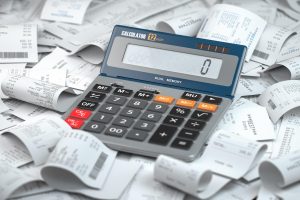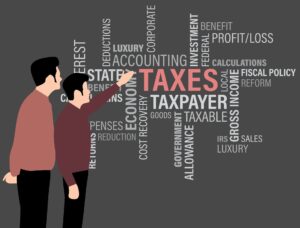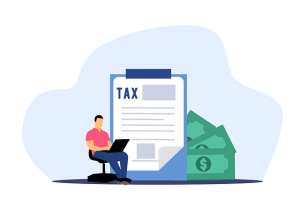Blog
Posted October 7, 2025
Self-Assessment Deadline Approaching: Your October Action Plan
With autumn upon us, the 31st January Self-Assessment deadline may feel distant, but savvy self-employed individuals and landlords know that October is the perfect time to get organised. Acting now means avoiding the January rush, maximising your tax efficiency, and ensuring you don’t miss any valuable deductions or planning opportunities.
Why October Matters for Your Self-Assessment
Starting your Self-Assessment preparation in October gives you crucial breathing room. Rather than scrambling through boxes of receipts in December or frantically searching for missing documents in January, you can take a methodical approach that often reveals money-saving opportunities you might otherwise miss.
For self-employed individuals, this timing allows you to review your year’s trading performance whilst the details are still fresh in your mind. For landlords, it provides space to properly categorise rental income and expenses and consider any property-related tax planning before the year ends.
 Your Document Gathering Checklist
Your Document Gathering Checklist
For Self-Employed Individuals: Begin by collecting all invoices issued to clients and payments received. Don’t forget about cash payments or bank transfers that might not have formal invoices. Gather receipts for business expenses including equipment, software subscriptions, advertising, travel costs, and home office expenses if you work from home.
Bank statements for all business accounts are essential, as are credit card statements showing business purchases. If you use your personal accounts for business transactions, highlight these clearly. Don’t overlook smaller expenses like professional magazine subscriptions, networking event fees, or business-related mobile phone costs.
For Landlords: Compile all rental income records, including any deposits retained or returned. Collect receipts for property maintenance, repairs, insurance premiums, letting agent fees, and safety certificates. Property management costs, advertising expenses for finding tenants, and professional fees for property-related accountancy work are all deductible.
Mortgage interest statements are particularly important, as are records of any major improvements versus repairs (these are treated differently for tax purposes). Service charge statements and ground rent payments should also be gathered.
Strategic Pension Contributions: Your Tax-Saving Opportunity
October presents an ideal window to review your pension contribution strategy. For self-employed individuals, pension contributions not only secure your financial future but also provide immediate tax relief.
You can contribute up to 100% of your relevant UK earnings or £60,000 (whichever is lower) into a pension and receive tax relief. If you’re a higher-rate taxpayer, this becomes particularly attractive as you can claim back the additional 20% through your Self-Assessment. Landlords should note that rental income does not count as relevant earnings for pension purposes.
Consider whether making contributions before 5th April could drop you into a lower tax band or help you avoid crossing significant thresholds.
 Capital Gains Planning: Acting Before Year-End
Capital Gains Planning: Acting Before Year-End
For those with investments or second properties, October is crucial for capital gains planning. You have until 5th April to utilise your annual exempt amount (currently £3,000 for the 2025/26 tax year) and consider whether realising gains or losses makes sense for your overall tax position.
If you’re planning to dispose of assets, timing becomes critical. Landlords considering selling buy-to-let properties should factor in not just capital gains tax, but also how the disposal might affect their overall income tax position. You also need to report and pay any capital gains tax due on UK residential property within 60 days of completing on the sale of the property using your Capital Gains Tax Account.
Consider whether transferring assets to a spouse or civil partner could be beneficial, or whether holding onto assets until after 5th April might be more tax-efficient if your income will be lower in the following year.
Common Pitfalls to Avoid
Many people underestimate allowable expenses. Self-employed individuals often forget about proportion of home costs if working from home or fail to claim for business use of personal vehicles. Landlords frequently miss smaller but legitimate expenses like property-related phone calls, bank charges, or the cost of collecting rent.
Don’t mix personal and business expenses without clear records. If you use personal funds for business purposes, ensure you have proper documentation. Similarly, if business accounts pay for personal items, these need to be clearly identified and treated correctly.
 The Benefits of Professional Support
The Benefits of Professional Support
While basic Self-Assessment returns can be straightforward, the tax landscape has become increasingly complex. The continuous changes to the tax regulations mean that professional advice often pays for itself through legitimate tax savings and peace of mind.
A qualified tax advisor can identify allowable expenses you might miss, ensure you’re claiming all available reliefs, and help with tax planning that could save money both this year and in future years. They can also handle the administrative burden, freeing you to focus on growing your business or managing your property portfolio.
Taking Action This October
Start by creating a simple filing system for the documents you’re gathering. Digital scanning can help organise physical receipts, and cloud storage ensures nothing gets lost. Set aside regular time each week to work through your records systematically rather than trying to tackle everything at once.
Review your current year’s performance and consider whether any year-end actions might be beneficial. This could include timing invoice payments, purchasing necessary equipment before April, or making charitable donations that qualify for tax relief.
Most importantly, don’t leave everything until the New Year. January will arrive faster than you think, and HMRC’s systems become increasingly busy as the deadline approaches.
Ready to Get Started?
Your Self-Assessment doesn’t have to be stressful. With proper planning and professional support, it becomes a valuable opportunity to review your financial position and optimise your tax efficiency.
Take control of your Self-Assessment today. Contact us to schedule your preparation meeting and ensure you’re making the most of every available tax relief and allowance. Our experienced team specialises in helping self-employed individuals and landlords navigate their tax obligations whilst maximising their financial position.
Don’t wait until January – your future self will thank you for acting now.
SERVICES
LATEST NEWS
CATEGORIES
- Blog (160)
- Business Advice (56)
- Just For Fun (17)
- Tax Tips (45)
- Video (8)











